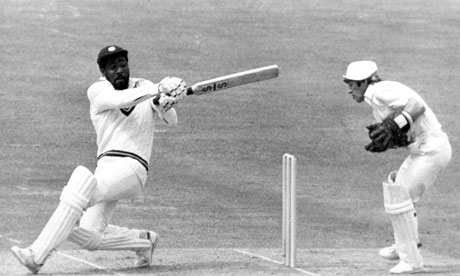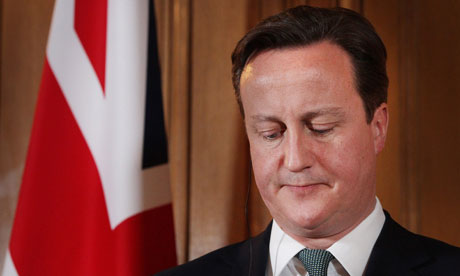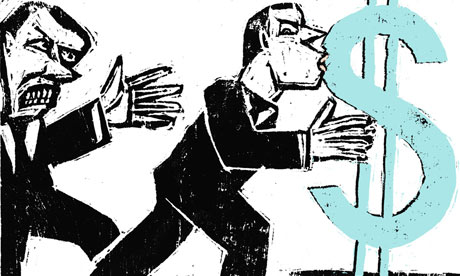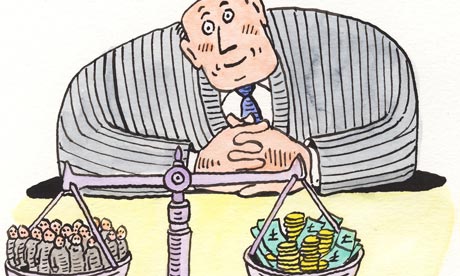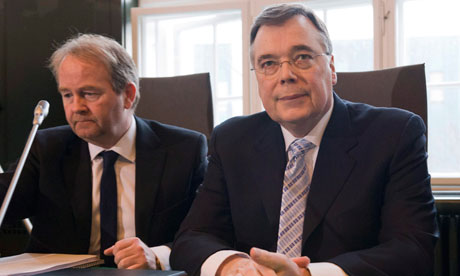The best government for decades will be brought down by the inherent pitfalls of partnership.
Just after the general election, over breakfast at St Pancras Station, I had an electrifying political conversation with Mark Oaten, the former Liberal Democrat MP and home affairs spokesman. It clarified my thinking and its details have stayed with me ever since.
Mr Oaten was the author of a rather important book, which analysed both the past British history of coalition government as well as the far more extensive contemporary experience in continental Europe and Ireland.
We were having breakfast because I wanted to ask him what lessons could be
learnt from past experience that would help me understand the
Conservative/Lib Dem administration, which had been formed just a few days
before. First of all, said Mr Oaten, coalitions are always disastrous for
the smaller party. It gets swallowed up, blamed for the failures and only
rarely credited with the successes, and then not nearly enough.
In some cases, as with the hapless Progressive Democrats, who never recovered
from their alliance with Fianna Fáil and were dissolved in the wake of the
2007 Irish general election, the smaller party vanishes from history. But
always it suffers heavy losses.
So I asked Mr Oaten whether there was any way to avoid this disaster. He shook
his head sorrowfully. The best that could be hoped, he replied, was to
mitigate the scale of the setback. “It is impossible,” he said, in a remark
that Nick Clegg, the Deputy Prime Minister, might do well to ponder, “to
walk out of a ministerial car and into an election campaign. There must be a
clear and decisive rupture between the coalition parties well before a
general election, otherwise the smaller party will always be obliterated.”
And when should such a breach occur? Once again, Mr Oaten produced a precise
and thought-provoking answer. “A danger moment comes approximately two years
after the general election. That is when the coalition agreement tends to
run out. At this point the parties often try to create a fresh coalition
agreement. But such attempts normally fail.”
Just under two years have passed since our conversation, and nothing since suggests that Mr Oaten’s analysis was wrong. There has indeed been an attempt to create a new agreement to renew the Government two years in, and it has – as predicted – failed. Lib Dem support has slumped, just as Mr Oaten said it would: the party will be lucky to win more than a dozen seats next time.
Meanwhile, the original dynamism and sense of purpose has gone. It is important to remember that the Lib Dems and the Tories remain united on certain issues, above all the need to tackle the deficit. But on numerous others – Europe, tax, health, trade policy, family policy, constitutional reform – the two parties are polarised.
This week’s leaked letter from Vince Cable to David Cameron and Nick Clegg merely drives home a point that has been obvious for some time: the Coalition has two economic policies. One is being run by George Osborne at the Treasury, while the other is being articulated by Mr Cable. The letter does the Business Secretary credit. It is a mature meditation on Britain’s economic and industrial predicament. The assertion that the Coalition does not possess a vision for future growth is nothing less than God’s own truth. While the leak may be regrettable, it is thoroughly reassuring that letters of this calibre are passing between senior members of the Government.
Allies of the Chancellor are trying to diminish Mr Cable by pointing out that he has been responsible for business since the Coalition was formed, and that he is therefore highlighting his own failure. This is disingenuous. No trade policy is even remotely possible without the assent of the Treasury. Consider Mr Cable’s most concrete and thoughtful proposal: the break-up of RBS. It was Mr Osborne’s decision to leave the doomed conglomerate to its own devices, a stagnant weight on the British economic system, marooned in the hands of the investment banker Stephen Hester for the past two years. The fact is that Mr Cable has a reasonably worked-out and coherent grasp of political economy, whether one agrees with it or not, and Mr Osborne does not. A large number of Tories want Mr Cable out. They are very stupid. Few things would damage Tory re-election chances more gravely than the Business Secretary on the back benches in partnership with the increasingly impressive Labour leader, Ed Miliband.
Far more lethal to the Coalition, however, is House of Lords reform. With the Government due to unveil the shape of its Bill by the end of this month, it may well turn into the final battlefield upon which the Coalition will fail. Nick Clegg’s motives are understandable. The Deputy Prime Minister, who has suffered a series of pulverising reverses and humiliations, is a fairly intelligent man. He probably senses the scale of the impending electoral catastrophe and is desperate to extract something – anything! – from the rubble. An elected House of Lords, chosen through proportional representation, will guarantee that the Lib Dems hold the balance of power in the Upper House for the foreseeable future, and secure Mr Clegg some sort of political legacy.
But he must surely have been told that his proposals are doomed. They may well bite the dust in the Commons, where the ablest young Tories, led by the outstanding Jesse Norman, have already destroyed, with frightening ease, their intellectual basis. But they have no chance whatever in the House of Lords, where my inquiries have discovered that appointed peers will refuse point blank to countenance their own extinction.
Some weeks ago, Lord Steel, a former Liberal leader, suggested a solution to this problem: peers should receive lump sums as a way of easing the prospect of retirement. The logic behind this sordid and grossly improper proposal is faultless. Many of the peers who now occupy the Lords benches paid good money to get in: they would doubtless be swayed by a generous tip on the way out. But it is surely wholly unacceptable, even by today’s debased standards of public conduct, that legislators should have a financial interest in the outcome of such an important vote.
The failure of Mr Clegg’s House of Lords reforms will have major consequences. Furious Lib Dems are already plotting their revenge in the shape of pulling the plug on planned constituency boundary changes, seen by Conservative Party strategists as essential to a Tory victory at the next general election.
I write all this with sadness. Plenty of mistakes have been made since 2010, but this has nevertheless been the best government for a generation, led by men and women for the most part of decency and goodwill. Important steps have been taken towards addressing the financial deficit, while the reforms to welfare and education are essential to the health of Britain as a nation and will soon be irreversible.
It is only thanks to the skill and admirable personal forbearance of Mr Clegg and Mr Cameron that the project has lasted as long as it has. But the odds against its long-term survival are lengthening.
Expect the Coalition to break apart by 2013 at the latest, though a minority Conservative administration may linger on for a while longer. And expect that five-year fixed parliament, like Lords reform, to turn out to be another of Nick Clegg’s charming constitutional delusions.
Just under two years have passed since our conversation, and nothing since suggests that Mr Oaten’s analysis was wrong. There has indeed been an attempt to create a new agreement to renew the Government two years in, and it has – as predicted – failed. Lib Dem support has slumped, just as Mr Oaten said it would: the party will be lucky to win more than a dozen seats next time.
Meanwhile, the original dynamism and sense of purpose has gone. It is important to remember that the Lib Dems and the Tories remain united on certain issues, above all the need to tackle the deficit. But on numerous others – Europe, tax, health, trade policy, family policy, constitutional reform – the two parties are polarised.
This week’s leaked letter from Vince Cable to David Cameron and Nick Clegg merely drives home a point that has been obvious for some time: the Coalition has two economic policies. One is being run by George Osborne at the Treasury, while the other is being articulated by Mr Cable. The letter does the Business Secretary credit. It is a mature meditation on Britain’s economic and industrial predicament. The assertion that the Coalition does not possess a vision for future growth is nothing less than God’s own truth. While the leak may be regrettable, it is thoroughly reassuring that letters of this calibre are passing between senior members of the Government.
Allies of the Chancellor are trying to diminish Mr Cable by pointing out that he has been responsible for business since the Coalition was formed, and that he is therefore highlighting his own failure. This is disingenuous. No trade policy is even remotely possible without the assent of the Treasury. Consider Mr Cable’s most concrete and thoughtful proposal: the break-up of RBS. It was Mr Osborne’s decision to leave the doomed conglomerate to its own devices, a stagnant weight on the British economic system, marooned in the hands of the investment banker Stephen Hester for the past two years. The fact is that Mr Cable has a reasonably worked-out and coherent grasp of political economy, whether one agrees with it or not, and Mr Osborne does not. A large number of Tories want Mr Cable out. They are very stupid. Few things would damage Tory re-election chances more gravely than the Business Secretary on the back benches in partnership with the increasingly impressive Labour leader, Ed Miliband.
Far more lethal to the Coalition, however, is House of Lords reform. With the Government due to unveil the shape of its Bill by the end of this month, it may well turn into the final battlefield upon which the Coalition will fail. Nick Clegg’s motives are understandable. The Deputy Prime Minister, who has suffered a series of pulverising reverses and humiliations, is a fairly intelligent man. He probably senses the scale of the impending electoral catastrophe and is desperate to extract something – anything! – from the rubble. An elected House of Lords, chosen through proportional representation, will guarantee that the Lib Dems hold the balance of power in the Upper House for the foreseeable future, and secure Mr Clegg some sort of political legacy.
But he must surely have been told that his proposals are doomed. They may well bite the dust in the Commons, where the ablest young Tories, led by the outstanding Jesse Norman, have already destroyed, with frightening ease, their intellectual basis. But they have no chance whatever in the House of Lords, where my inquiries have discovered that appointed peers will refuse point blank to countenance their own extinction.
Some weeks ago, Lord Steel, a former Liberal leader, suggested a solution to this problem: peers should receive lump sums as a way of easing the prospect of retirement. The logic behind this sordid and grossly improper proposal is faultless. Many of the peers who now occupy the Lords benches paid good money to get in: they would doubtless be swayed by a generous tip on the way out. But it is surely wholly unacceptable, even by today’s debased standards of public conduct, that legislators should have a financial interest in the outcome of such an important vote.
The failure of Mr Clegg’s House of Lords reforms will have major consequences. Furious Lib Dems are already plotting their revenge in the shape of pulling the plug on planned constituency boundary changes, seen by Conservative Party strategists as essential to a Tory victory at the next general election.
I write all this with sadness. Plenty of mistakes have been made since 2010, but this has nevertheless been the best government for a generation, led by men and women for the most part of decency and goodwill. Important steps have been taken towards addressing the financial deficit, while the reforms to welfare and education are essential to the health of Britain as a nation and will soon be irreversible.
It is only thanks to the skill and admirable personal forbearance of Mr Clegg and Mr Cameron that the project has lasted as long as it has. But the odds against its long-term survival are lengthening.
Expect the Coalition to break apart by 2013 at the latest, though a minority Conservative administration may linger on for a while longer. And expect that five-year fixed parliament, like Lords reform, to turn out to be another of Nick Clegg’s charming constitutional delusions.


 221 Comments
221 Comments



